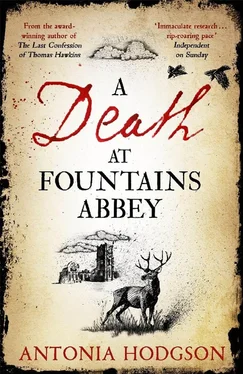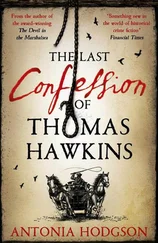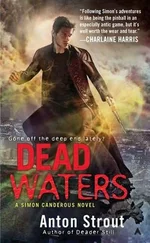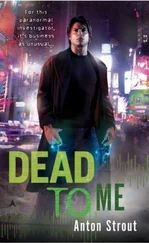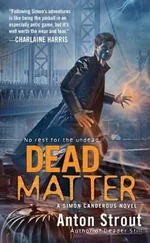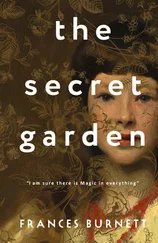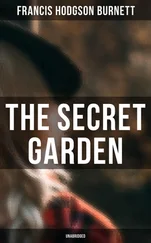Each morning of our journey north, Sam had clambered ahead of me into the carriage and taken the bench closest to the horses, facing backwards. This suited us both well enough: if we had sat side by side we would have rolled into one another at every sharp corner. But it was such a deliberate action that I had begun to suspect a deeper motive; Sam did not do such things upon a whim.
On the day of my hanging, I had been bound in chains and paraded through the streets on an open cart. Condemned prisoners ride backwards to the gallows. The journey had been terrifying: the crowds lining the streets, the mud flung at the cart, the hatred pulsing through the air. My own fear, sharp and solid as a stone in my throat. We must all travel blind to our deaths, but to feel its slow, creeping approach with every turn of the wheel is a horror beyond imagining.
The simple roll and pitch of a carriage could return me to that morning in a heartbeat. Somehow, Sam understood this and took the seat facing backwards in order to spare me. How he had come to guess at such a deep-buried feeling I couldn’t say – and there would be no profit in asking. I was lucky to squeeze ten words out of the boy in fifty miles. But we had travelled together four days in succession with no other company, facing one another as the carriage rumbled along. Perhaps he had simply read the truth in my eyes. It was an unsettling thought, that he had been watching me so carefully.
You can’t trust him, Tom. Kitty’s voice again in my head. You know what he is.
We had travelled no more than a quarter hour when I saw a boundary wall ahead, ten feet high and stretching off into the distance. The horses pulled harder with no need for the whip, eager to be home. ‘Is this Mr Aislabie’s estate?’
Pugh twisted in his seat. ‘One corner of it. It’s Aizelbee , sir.’ I’d pronounced it Ailabee – the French way .
I hunched lower in my coat. It was a bright morning, but there was a sharp wind blowing in from the east. Sam was sitting on his hands to keep them warm. Feeble city folk, the pair of us.
‘Will we pass Fountains Abbey?’ Fellow guests at the Oak had mentioned the ancient monastery at supper. According to the – somewhat biased – landlord, they were the largest and the most splendid ruins in the country. And haunted, naturally.
‘No, sir,’ Pugh replied, and fell silent for once.
We rode through the tiny village of Studley Roger. Sam released his hands and clung to the edge of the carriage, taking in every detail as we passed through the hamlet. The size of the windows, the shape of the chimneys. The doors left open to the fresh air. A couple of muddy lanes. But nothing familiar, not really. And no tavern , I noticed, mournfully. No rowdy coffeehouse, the air clogged with pipe smoke, the latest newspaper laid out upon the table.
‘Second house upon the left. How many geese in the yard?’
Sam blinked. ‘Seven.’
This was a game we had played along the road. At least, I had played it and Sam had humoured me. He’d been raised to remain alert to his surroundings. In the city slums, there were threats and opportunities lurking in every doorway. Information could earn a boy his supper, or save his life. But I suspected Sam had a particular talent for it, something he was born with: a precision of mind far beyond my own or anyone else’s, for that matter.
We arrived at an iron gate, decorated with a coat of arms and flanked by a pair of stone lodges. An old man hurried out from one of them, waving his hat in greeting as he pulled open the gate. We rode through at a brisk pace, on to an oak-lined avenue. Thick branches reached out across the path, forming a tangle of shadows beneath. The sun, filtered through the leaves, cast a soft green light upon our skin.
I smiled at Sam, thinking of the rookery of St Giles, where planks and ladders criss-crossed the rooftops, creating high pathways through the slums. ‘Like home.’
He frowned in disagreement.
‘Mr Aislabie plans to chop all these down,’ Pugh said, waving at the trees. ‘Limes are better for an avenue. They grow straight. Oaks grow gnarly.’ As we crested the hill he slowed the horses. ‘If you’d look behind you, sir.’
I turned to see a magnificent view, the long avenue of oaks leading straight back towards the gate. From here we could see the valley below and then, rising on a twin hill, the town of Ripon. Through some trick of perspective, it appeared as if one could reach out and steal it. The avenue had been laid out so that the cathedral crowned the view precisely.
Pugh was smiling, waiting for a compliment as if he had knitted the entire thing by hand.
‘Wonderful,’ I obliged.
He grinned, and moved the horses on. ‘Best estate in England. Best in Europe when Mr Aislabie’s done with it.’
And how did Mr Aislabie pay for all these improvements, I wondered? Had he not been left bankrupt ? Perhaps he’d stumbled across a magic lamp.
We turned right on to a gravelled drive already planted with the preferred lime trees. The path grew steep, the horses pulling hard against the harness. As we crested the hill, I craned my neck to catch the first view of the house.
I was expecting grandeur: a majestic heap in the new Palladian style. The views had promised it. The avenue of limes had proclaimed it. But Studley Hall was an indifferent thing, with very little to recommend it. While the front looked out upon a magnificent deer park, the rest of the house was suffocated by dense woodland. The original building, with its great arched porch and tall windows, must have begun its days as a banqueting hall. It looked to be at least three hundred years old and in a poor state of repair. Over time, additional wings had been tacked on to the original frame, with no thought to proportion or symmetry.
It soon became clear why Mr Aislabie had allowed his home to crumble into such a woeful condition. To the left of the house and some thirty yards in front of it, a score of men toiled over a new building. Carts rumbled back and forth, pulled by great workhorses. A large, sweating man stood in the middle of the foundations, swearing loudly at the workers.
Aislabie must be working upon a new home, more in keeping with his vast estate. It was certainly laid out on a grand scale. I frowned at the building works as we passed. Noise, mud, and a ruined view, barely a hundred feet from where we would be sleeping. The foreman caught my frown and scowled in turn, arms folded across his fat belly.
Pugh slowed the horses and the carriage settled to a halt at the front steps. Sam jumped down at once, landing almost soundlessly on the gravel. The house was no more impressive at close quarters. The window sashes needed a fresh coat of paint after a freezing winter, and the roof was in a sorry condition. I searched for something pleasant to say.
‘Charming.’
Pugh looked at me, then looked at the house, as if we might be seeing two different buildings.
The doors to the great hall swung open and a man of middling age emerged, one shoulder hunched. ‘Good day, sir,’ he called down the steps, clutching the edge of the door for balance. As he shuffled out I saw that his right leg was lost, replaced with a wooden peg. I hurried up to meet him, and only just suppressed a gasp of shock. His face had been ruined by fire. The right side had caught the worst of it, leaving behind a thick web of scars. Old burn marks and further scars spread down his neck, disappearing beneath his cravat. His right eye was blind, the iris a cloudy grey. His right hand too, was badly damaged, twisted in upon itself save for the thumb and forefinger.
I did my best not to stare, but it was impossible. It must have been a terrible accident, to inflict such horrifying injuries. He waited, used to the reaction of strangers. When I was recovered enough to give my name, he dipped his head.
Читать дальше
